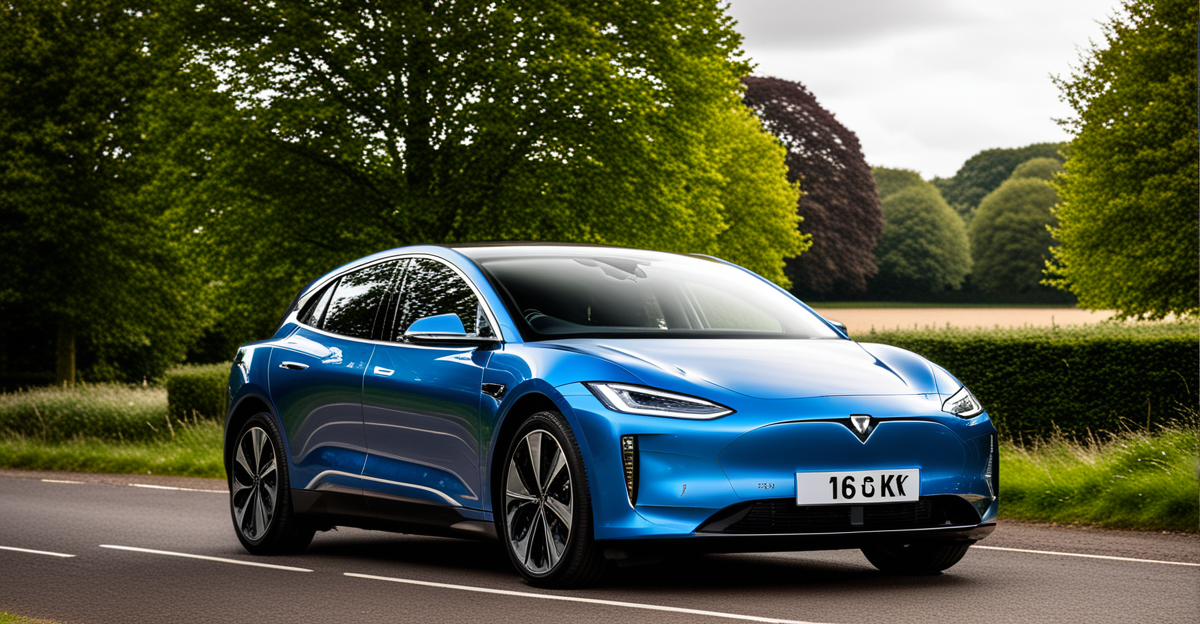Impact of Electric Vehicle Adoption on UK Car Manufacturing
Electric vehicle adoption has fundamentally transformed the UK automotive industry, prompting a decisive shift from traditional internal combustion engine vehicles to electric powertrains. This transition requires substantial EV production shifts, including re-tooling existing manufacturing lines to accommodate electric motors, battery packs, and associated electrical components. Factories are investing heavily in advanced manufacturing technologies such as automation and battery assembly systems to improve efficiency and ensure high-quality output.
These changes are not occurring in isolation. The industry has seen an uptick in collaborative initiatives between established automakers and technology firms. Partnerships aim to accelerate innovation, integrate cutting-edge software and hardware solutions, and optimize supply chains for critical EV components. This cooperation helps manufacturers navigate challenges while capitalizing on new market opportunities tied to sustainability and clean mobility.
Additional reading : What Challenges Do UK Automotive Manufacturers Face Post-Brexit?
Furthermore, the need to reskill the workforce to handle new production techniques highlights the complex implications of EV adoption for UK manufacturers. As a result, the industry is simultaneously redefining its technological capabilities and operational models, shaping a future where electric vehicle manufacturing dominates the UK automotive sector.
Changes in Automotive Sales and Market Trends
The surge in electric vehicle sales is reshaping the UK car market trends significantly. Recent data shows that EVs have captured an increasing portion of new car registrations, with electric models now accounting for over 15% of the UK market. This marks a steep rise compared to previous years dominated by petrol and diesel vehicles.
In parallel : What role does AI play in the future of UK automotive engineering?
What drives this shift? Consumer interest in environmental benefits and technological innovation leads the way. Many buyers consider lower running costs and government incentives as key factors encouraging consumer EV uptake. For example, grants and tax breaks reduce initial expenses, making electric vehicles more financially accessible.
Moreover, car buyers are becoming more aware of the long-term savings associated with EVs, including lower maintenance costs and exemption from certain road taxes. These factors influence purchasing decisions strongly, alongside concerns about charging infrastructure and vehicle range.
Industry experts emphasize that understanding evolving UK car market trends is crucial for manufacturers aiming to align production with demand. As consumer preferences evolve, the balance between traditional car sales and rising electric vehicle sales will continue shaping the automotive landscape across the UK.
Effects on Supply Chains and Component Sourcing
The shift to electric vehicle manufacturing has profoundly altered automotive supply chains in the UK. Traditional supply networks centered on internal combustion engine components are being replaced by complex systems focused on batteries, electric motors, and power electronics. This requires UK parts suppliers to adapt quickly to new demands for precision-manufactured electric components.
One pressing challenge is securing reliable EV battery sourcing. Batteries rely on critical minerals like lithium, cobalt, and nickel, which face extraction and geopolitical supply risks. Manufacturers increasingly seek diversified and sustainable sources, alongside investments in battery recycling technologies to reduce dependency.
The dynamics of global partnerships also shift. UK-based suppliers must integrate deeper into international networks to remain competitive. Collaborative schemes, often between UK manufacturers and technology firms abroad, help streamline supply chains and mitigate disruptions.
Ensuring resilient and responsive supply chains is paramount as electric vehicle manufacturing scales up. Adapting component sourcing strategies safeguards production continuity and supports the UK’s leadership ambitions in EV production.
Implications for Employment and Workforce Skills
Electric vehicle manufacturing triggers significant changes in automotive jobs UK, demanding a workforce skilled in new technologies and production methods. Traditional roles focusing on internal combustion engines diminish, while jobs requiring expertise in battery assembly, power electronics, and software integration expand rapidly.
This EV workforce transition necessitates comprehensive skills development programs. Manufacturers and educational institutions collaborate to create training initiatives equipping workers with competencies in electrical engineering, robotics, and diagnostic technologies. Reskilling efforts ensure that existing employees adapt, reducing job displacement risks.
Additionally, the rise of advanced automation in EV production lines modifies labour dynamics, emphasizing multi-skilled employees who can manage complex machinery alongside digital processes. The sector also creates new opportunities in sectors like battery technology research and EV maintenance services.
Addressing skills shortages proactively supports the UK automotive industry’s shift toward electric vehicle manufacturing. Companies investing in workforce development not only secure operational efficiency but also position themselves competitively in the rapidly evolving market. Continuous learning remains vital as EV technology evolves and production scales up across the UK.
Impact of Electric Vehicle Adoption on UK Car Manufacturing
Electric vehicle adoption drives major EV production shifts in the UK automotive industry, transforming manufacturing from internal combustion engine vehicles to electric vehicle production lines. This transition demands extensive factory re-tooling, with facilities investing in advanced technologies like automation, robotics, and precision battery assembly systems to handle electric drivetrains and components effectively.
Automakers are collaborating with technology partners to accelerate this change. These partnerships focus on integrating software solutions, improving battery technologies, and optimizing production workflows. By combining expertise, manufacturers reduce development time and navigate complex challenges such as supply constraints and quality standards.
Investment in cutting-edge manufacturing technologies supports scalability and cost-efficiency in electric vehicle manufacturing. This strategic pivot enables the UK automotive industry to remain competitive globally while aligning with sustainability goals. The shift also requires flexible manufacturing setups capable of producing both electric and hybrid models as market demand evolves.
Ultimately, these electric vehicle manufacturing transformations position UK factories at the forefront of next-generation automotive production, securing industry resilience and innovation leadership amid the global EV revolution.
Impact of Electric Vehicle Adoption on UK Car Manufacturing
Electric vehicle adoption prompts major EV production shifts within the UK automotive industry, moving away from traditional internal combustion engine models toward specialized electric vehicle manufacturing. This shift requires extensive factory re-tooling to install new assembly lines dedicated to electric drivetrains, battery packs, and power electronics. To accommodate these changes, UK facilities are investing heavily in advanced manufacturing technologies like automation, robotics, and precision battery assembly systems that enhance production efficiency and quality.
Collaboration between automakers and technology partners plays a vital role in smoothing this transition. These partnerships integrate software development, battery innovation, and manufacturing process improvements, which accelerates development cycles and addresses technical challenges. They also facilitate supply chain optimization critical for electric vehicle manufacturing success.
Such investment and cooperation enable UK manufacturers to remain competitive in the evolving global market while supporting the country’s sustainability ambitions. By embracing flexible factory designs and cutting-edge technologies, the UK automotive industry positions itself to lead in electric vehicle production, navigating complex market demands and evolving consumer preferences effectively.
Impact of Electric Vehicle Adoption on UK Car Manufacturing
The UK automotive industry is undergoing profound transformation driven by EV production shifts. The move from internal combustion engine vehicles to electric vehicle manufacturing compels extensive factory re-tooling. Existing facilities adapt by installing specialized assembly lines for battery packs, electric motors, and power electronics. This reconfiguration demands heavy investment in advanced manufacturing technologies such as automation and robotics to maintain production efficiency and quality standards.
Collaborative initiatives are crucial in accelerating this shift. Automakers increasingly partner with technology firms to integrate innovations in battery technology and software development. These collaborations reduce development cycles, enhance supply chain resilience, and improve manufacturing workflows. For example, partnerships enable rapid adoption of cutting-edge battery assembly systems, critical for scaling electric vehicle output.
Overall, this synergy between traditional manufacturers and technology partners empowers the UK automotive industry to meet rising EV demand while staying competitive globally. Flexible factory designs and digitalized production processes underscore the sector’s commitment to embracing electric vehicle manufacturing as the future foundation of UK automotive production.
Impact of Electric Vehicle Adoption on UK Car Manufacturing
Electric vehicle adoption drives significant EV production shifts within the UK automotive industry, moving manufacturing away from internal combustion engine vehicles to dedicated electric vehicle production lines. This shift demands extensive factory re-tooling, where facilities invest in new assembly equipment tailored for battery packs, electric motors, and power electronics. Upgrading plants with advanced manufacturing technologies such as automation and robotics enhances production efficiency and consistency.
Collaborative initiatives play a fundamental role in this transformation. Automakers increasingly partner with technology companies to integrate innovations in battery technology, software systems, and manufacturing workflows. These partnerships accelerate development timelines and strengthen supply chain resilience, ensuring electric vehicle manufacturing can meet growing demand.
Such cooperation and investment enable the UK automotive industry to remain competitive globally while supporting national sustainability targets. Embracing flexible, digitally enabled factory setups allows manufacturers to adapt swiftly to evolving market demands and consumer preferences, positioning the UK at the forefront of electric vehicle manufacturing innovation.
Impact of Electric Vehicle Adoption on UK Car Manufacturing
The UK automotive industry is experiencing pivotal EV production shifts as it transitions from internal combustion engine vehicles to exclusive electric vehicle manufacturing. This change necessitates extensive re-tooling of factories, involving the installation of new assembly lines designed specifically for electric drivetrains, battery packs, and advanced power electronics. To meet these demands, manufacturers invest heavily in cutting-edge technologies including automation, robotics, and precision battery assembly systems, all crucial for improving production efficiency and maintaining high-quality standards.
Collaboration plays a significant role in managing this transformation. Automakers forge strong partnerships with technology firms to integrate innovations such as enhanced battery systems and sophisticated software controls. These collaborative initiatives accelerate product development, optimize manufacturing workflows, and address complex technical challenges inherent in electric vehicle manufacturing.
By embracing these EV production shifts and fostering strategic alliances, the UK automotive industry maintains its global competitiveness. Flexible factory designs, combined with advanced manufacturing technologies, empower UK manufacturers to adapt effectively to ever-evolving market demands, securing a prominent position in the rapidly growing electric vehicle sector.









